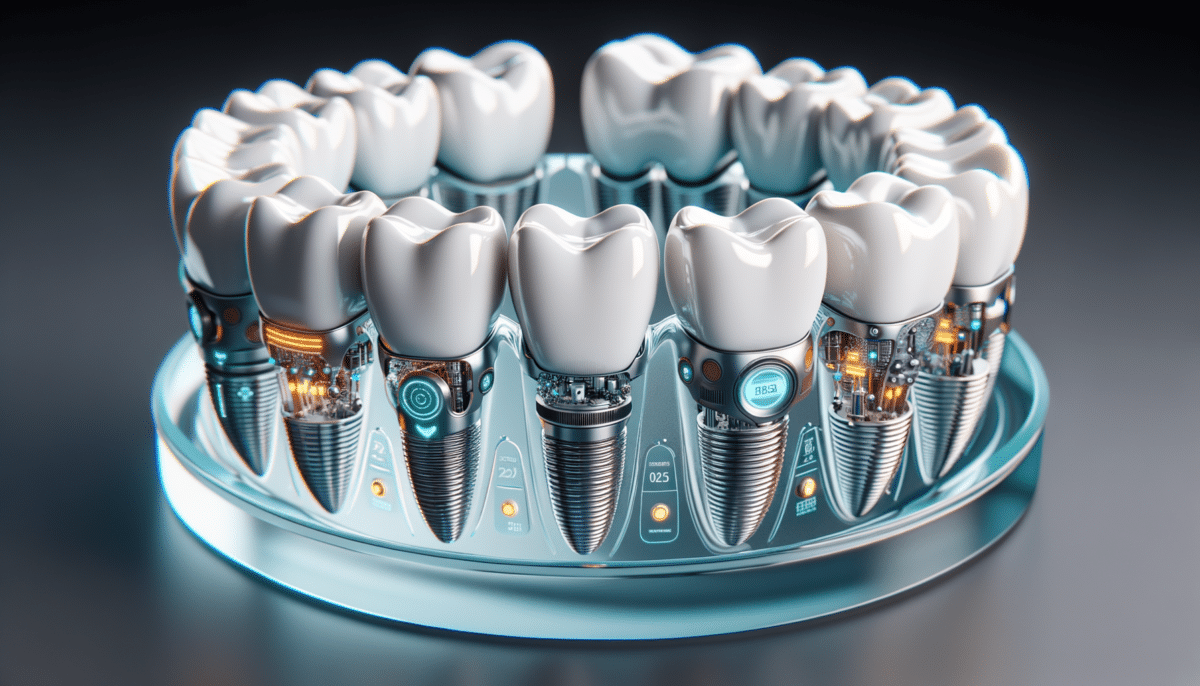The Evolution of Dental Implants
Dental implants have come a long way since their inception. Initially, they were rudimentary and often associated with a high failure rate. However, with technological advancements, dental implants have evolved into a reliable solution for missing teeth. In 2025, dental implants are expected to undergo further transformations, making them even more effective and accessible. The focus is on improving the materials used, enhancing the techniques for implantation, and reducing recovery times for patients.
Recent innovations include the use of biocompatible materials that integrate seamlessly with the jawbone, reducing the risk of rejection and promoting faster healing. Additionally, 3D printing technology is being employed to create custom implants that fit perfectly within the patient’s oral structure. These advancements not only improve the functionality of the implants but also enhance the aesthetic outcomes, providing patients with a more natural-looking smile.
Looking forward, the integration of digital technology in dental implant procedures is anticipated to revolutionize the field. From digital impressions to computer-aided design and manufacturing, these technologies allow for greater precision and customization, leading to higher success rates and patient satisfaction.
Benefits and Challenges of Dental Implants in 2025
Dental implants offer numerous benefits, making them a preferred choice for tooth replacement. They provide a stable foundation for artificial teeth, ensuring durability and functionality akin to natural teeth. Moreover, implants help maintain the jawbone’s integrity, preventing bone loss that typically occurs after tooth loss. This feature is particularly beneficial in preserving facial structure and preventing premature aging.
Despite these advantages, dental implants are not without challenges. The cost remains a significant barrier for many patients, as implants are often more expensive than other tooth replacement options. However, as the technology advances and becomes more widespread, costs are expected to decrease, making implants more accessible to a broader population.
Another challenge is the need for a surgical procedure, which can be daunting for some patients. However, with advancements in minimally invasive techniques, the procedure is becoming less intimidating. Enhanced imaging technologies and guided surgery are reducing the risk of complications and improving recovery times, making the process more patient-friendly.
Future Trends in Dental Implantology
The future of dental implants is promising, with several trends indicating significant advancements. One such trend is the development of smart implants. These implants are equipped with sensors that can monitor the health of the surrounding tissues and provide real-time feedback to both the patient and the dentist. This innovation is expected to improve the longevity of implants by allowing for early detection of potential issues.
Another exciting trend is the use of regenerative medicine in dental implantology. Researchers are exploring the potential of stem cells to promote bone regeneration around the implant site, which could enhance the stability and success of the implants. This approach not only supports the implant but also aids in the overall health of the patient’s oral cavity.
Lastly, the integration of artificial intelligence (AI) in dental care is set to transform the implant process. AI can assist in treatment planning, predicting outcomes, and customizing patient care. This technology ensures that each patient receives a tailored approach, maximizing the success of their dental implants and improving their overall oral health.
